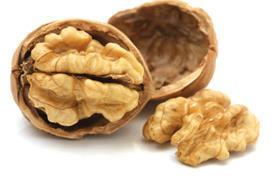
Chilean dried fruit and nut exporters could benefit from China’s imposition of tariffs on a range of US fruits and vegetables in the escalating trade spat between the two countries.
Karl Samsing, president of the Chilean Walnut Commission until 2017, called it “a tremendous opportunity to be explored, since currently our nuts enter China with a 0 per cent tariff, and the US pays 25 per cent, which will increase to 40 per cent according to the conditions set out by China”.
While planted area increasing at around 15 per cent a year and production forecast to rise from 90,000 tonnes in 2017 to 200,000 tonnes in 2024, Chile is looking to increase its market penetration in China and other regions.
Chile currently sends both shelled and in-shell walnuts to China, having gained access for the latter in 2016. Thanks to its free trade agreement, the nuts are not subjected to any tariff.
Figures from the Chilean Walnut Commission show that in 2016 Chile sent 648 tonnes of in-shell walnuts to China, equivalent to 1.9 per cent of the total 18,680 tonnes shipped that year.
However, the market is growing rapidly – the half-year figures to June 2017 show an 86 per cent increase on the previous year.
Meanwhile, Andrés Rodríguez, executive director of Chile Prunes, said that the imposition of an additional 25 per cent tariff on California prunes, which already pay a 15 per cent tariff to enter China, would “undoubtedly strengthen the presence of Chilean plums in Asia”.
Chilean prunes were exported to 80 countries last year, with shipments totalling US$175m, an increase of 11 per cent on 2016.
Asoex president Ronald Bown said that in respect to fresh fruit, it was still too early to tell whether Chile would benefit from the increased tariffs on US products.
“This situation must be observed with a broader perspective, not only thinking about the effects for our fruit in China, but also the impact in other markets where US production could be re-routed if it does not go to that Asian market, which could complicate our exports,” he explained.
Elsewhere, Andrés Armstrong, executive director of the Chilean Blueberry Committee, observed that there might be a chance for Chile to increase its frozen blueberry shipments to China.






No comments yet